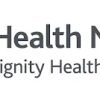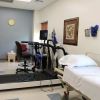The Benefits of Heart Disease Prevention Programs: A Comprehensive Guide to Cardiovascular Health
- Understanding Heart Disease and Its Impact
- Why Heart Disease Prevention Programs Are Crucial
- Key Benefits of Heart Disease Prevention Programs
- Real-Life Success Stories: How Prevention Programs Work
- How to Get Started with Heart Disease Prevention Programs
1. Understanding Heart Disease and Its Impact
Heart disease is one of the leading causes of death worldwide, with millions of people at risk due to various factors like high blood pressure, high cholesterol, and unhealthy lifestyle choices. Understanding the impact of heart disease on overall health is crucial for everyone, particularly for individuals with a family history or risk factors.
For many years, heart disease was thought to primarily affect men, but today, we know that it impacts women just as severely, especially postmenopausal women. The good news is that heart disease is largely preventable. Early intervention and lifestyle modifications can significantly reduce the risk of developing heart-related issues. That’s where heart disease prevention programs come in—they focus on offering the tools, education, and strategies to mitigate these risks.
2. Why Heart Disease Prevention Programs Are Crucial
Heart disease prevention programs offer a structured approach to reducing the risk of cardiovascular conditions. These programs are designed to help individuals adopt healthier lifestyles, make informed decisions about diet and exercise, and manage stress effectively. The prevention programs focus not just on physical health, but also on mental and emotional well-being.
These programs are especially vital in today's world, where sedentary lifestyles, poor dietary habits, and increasing stress levels contribute to rising heart disease rates. With early detection and lifestyle changes, many people can avoid the need for heart surgeries or medications later in life. Heart disease prevention programs aim to be proactive rather than reactive, providing tools to prevent issues before they arise.
3. Key Benefits of Heart Disease Prevention Programs
3.1. Reducing the Risk of Heart Disease
One of the most significant benefits of heart disease prevention programs is that they help lower the risk of developing heart disease. Through education and guidance on proper nutrition, exercise, and stress management, participants can significantly reduce their risk factors, such as high blood pressure, obesity, and high cholesterol. Preventive measures can delay or even eliminate the need for invasive treatments such as surgeries or medications.

3.2. Improving Overall Health
In addition to cardiovascular health, heart disease prevention programs contribute to improving overall health. By promoting a balanced diet, regular physical activity, and mental wellness, these programs enhance general well-being. Participants often experience weight loss, increased energy, improved sleep, and better mental clarity as they adopt healthier habits.
Capital Health Medical Center – Hopewell
capital health medical center hopewell
1 Capital Way, Pennington, NJ 08534, USA

3.3. Long-Term Financial Savings
Prevention is often more cost-effective than treatment. By reducing the risk of developing heart disease, participants in heart disease prevention programs can avoid costly medical bills related to hospitalizations, surgeries, and long-term medications. The financial savings from avoiding heart disease treatments can be substantial, both for individuals and healthcare systems as a whole.
3.4. Increased Life Expectancy and Quality of Life
Perhaps the most valuable benefit of heart disease prevention programs is the potential to live a longer, healthier life. By adopting a heart-healthy lifestyle, individuals can enjoy an improved quality of life with more energy, fewer health problems, and the ability to remain active as they age. This translates to a higher quality of life, with fewer limitations imposed by cardiovascular issues.
4. Real-Life Success Stories: How Prevention Programs Work
Consider Sarah, a 55-year-old woman who had struggled with high cholesterol and weight gain for years. She enrolled in a heart disease prevention program, which included personalized nutrition counseling, exercise routines, and stress reduction techniques. Over the course of several months, Sarah not only lost weight but also saw a significant reduction in her cholesterol levels. Her doctor was amazed by the improvement, and Sarah felt more energized and healthier than she had in years. This success story highlights how prevention programs can reverse some of the early signs of heart disease and improve overall health.
Another inspiring example is John, a 48-year-old man who had a family history of heart disease. He joined a local heart health program focused on fitness and healthy eating. After six months of consistent effort, John lost over 20 pounds, lowered his blood pressure, and was able to reduce his reliance on medication. His experience shows that prevention programs can be transformative, especially when combined with dedication and the right support.
5. How to Get Started with Heart Disease Prevention Programs
Getting started with a heart disease prevention program is easier than you might think. Begin by consulting with a healthcare provider who can assess your risk factors and recommend a program that fits your specific needs. Many programs offer online or in-person sessions, and many include support from nutritionists, fitness trainers, and counselors.
For those interested in taking the first step towards better heart health, consider exploring heart disease prevention programs offered by reputable healthcare providers, gyms, and wellness centers. Many programs provide tailored advice to help individuals reduce their risks based on personal health data, making the process both effective and personalized.
By making heart disease prevention a priority, you’re not just adding years to your life—you’re also ensuring a more fulfilling, healthier lifestyle. If you’re ready to take action, don’t hesitate to look into programs that can help you achieve these vital health goals. Your heart will thank you for it!





















Deborah Heart and Lung Center
deborah heart and lung center
200 Trenton Rd, Browns Mills, NJ 08015, USA